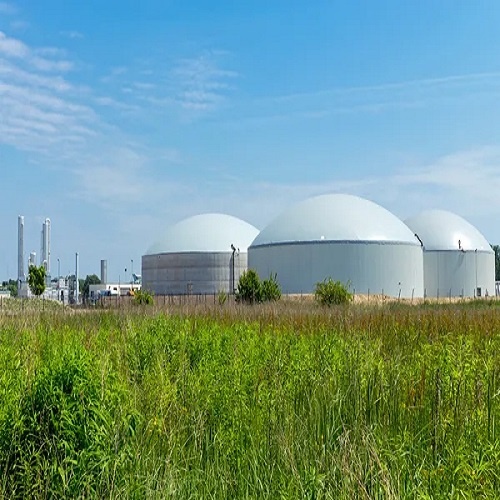Union Minister for Jal Shakti, C R Patil, recently led an important meeting with chairpersons and managing directors of dairy cooperatives and milk dairies from Gujarat. The discussion centered around accelerating the development of Compressed Biogas (CBG) plants, aiming to transform cattle dung and other organic waste into sustainable energy and organic manure, aligning with the government’s “Waste to Wealth” initiative.
Patil emphasized the crucial role of the dairy sector in driving energy efficiency and sustainability. He pointed out that converting organic waste from dairy farms into CBG would bring substantial environmental and economic benefits to Gujarat. The initiative is expected to significantly cut carbon emissions while promoting self-sustaining energy models, particularly in rural areas.
“The dairy sector is a cornerstone of rural livelihoods in India. By adopting green technologies such as CBG production, we can not only reduce our carbon footprint but also create new income streams for farmers and cooperatives, including through carbon credit opportunities,” said Patil.
Gujarat’s Untapped Potential for CBG Production
Gujarat, with a bovine population of 2.01 crore as per the 2019 Livestock Census, generates approximately 2 lakh tons of cattle dung daily. This abundant organic waste presents the state with a vast opportunity to produce an estimated 4,000 tonnes of CBG per day, significantly contributing to the region’s green energy sector.
Key Outcomes from the Meeting:
- Discussions focused on utilizing cattle waste and other organic materials for bio-CBG production.
- The exploration of partnerships between cooperatives, private sector players, and government bodies to facilitate funding and technology transfers.
- A commitment to offer technical and financial assistance under existing government schemes for bio-energy projects.
- A vision to position Gujarat as a leading state in integrating clean energy practices within the dairy industry.
- An agreement to establish more than 20 CBG plants and over 30,000 individual biogas units, with an estimated investment exceeding ₹1,000 crores.
The meeting saw strong support from cooperative leaders, who expressed eagerness to adopt eco-friendly initiatives. Patil encouraged all stakeholders to collaborate actively to achieve India’s energy and sustainability targets, benefiting from various government schemes aimed at positioning the dairy industry as a central player in the green revolution.
This initiative is in line with India’s broader commitment to energy self-reliance and global climate change mitigation. The government continues to prioritize renewable energy development and innovative solutions for sustainable growth.
Senior officials from the Department of Fertilizers, Department of Animal Husbandry, Ministry of New & Renewable Energy, Ministry of Petroleum and Natural Gas, and senior members from the Department of Drinking Water and Sanitation (DDWS) were also present, including the Secretary and Joint Secretary & Mission Director under the GOBARdhan (Galvanizing Organic Bio-Agro Resources Dhan) initiative.












